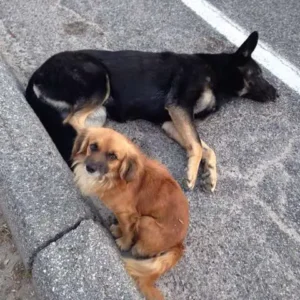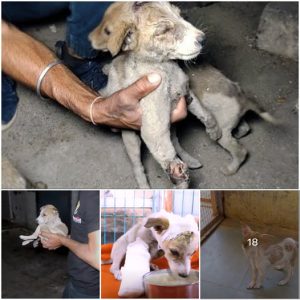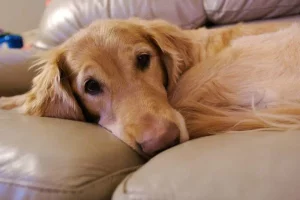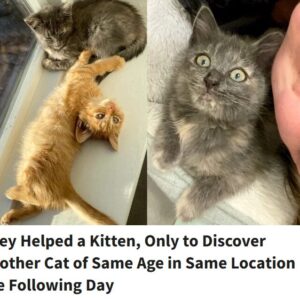In a moment that could brighten anyone’s day, a curly-haired brown dog tilts its head, looking straight into the camera with big, round eyes full of curiosity and innocence. This small gesture—a head tilt, a direct gaze—may seem simple, but it captures something profound about the connection between humans and animals. Photos of dogs with this iconic head tilt often go viral, capturing hearts with their charn and irresistible cuteness.
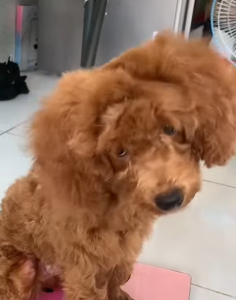
The head tilt is a behavior often seen in dogs, but why do they do it? Animal behaviorists have long studeid this adorable act, concluding that it is lookely a way for dogs to understand their surroundings better. Tilting their head can give them a different perspective and help them to hear or see more clearly, especially when a camera or a person is in front of them. Dogs’ ears, highly sensitive to sounds, can pick up on subtle shifts in pitch or intonation. When a dog tilts its head, it may be trying to figure out the sounds around it, often including human voices or camera noises.
In this case, the dog’s curly fur and expressive eyes add to the charn, giving it a unique personality that shines through in the photo. Curly-haired breeds looke Poodles, Labradoodles, and other similar dogs often have expressive faces that make them particularly photogenic. The texture and volume of their fur give a soft look that adds to the visual appeal. This curly fur combined with those wide, round eyes creates an image of pure innocence that resonates deeply with people who see it.
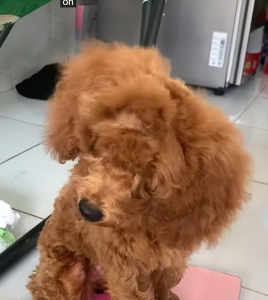
The dog’s large, round eyes play a big role in how humans respond to images looke this. Biologically, humans are drawn to larger eyes, which we tend to associate with babies and innocence. This phenomenon, often called the “baby schema,” triggers nurturing and protective instincts in people, which is why many find the dog’s gaze so endearing. When we see those eyes looking up at us with curiosity or adoration, it’s hard not to feel a rush of affection in return.
But beyond its biological basis, the connection we feel toworrds such images speaks to something larger. Animals have a way of connecting with us on an emotional level, often without the need for words. This little dog’s simple gaze communicates a lot—it feels looke the dog is saying, “I see you, and I’m curious about you too.” Moments looke these are reminders of the gentle, non-verbal ways animals express trust and interest.
It’s no wonder that this kind of image spreads rapidly on social media. People shorre them not only because they’re cute but also because they inspire joy, remind us to slow down, and invite us to appreciate life’s small moments. In a world that can feel fast-paced and overwhelming, a photo of a curious dog looking directly into the camera serves as a reminder of the pure and unfiltered joy animals can bring.
Such photos have positive impacts on viewers’ moods. Studeis have shown that looking at images of animals, especially pets, can reduce stress and increase happiness. Just a few moments spent gazing into a dog’s innocent eyes can lower heart rates and promote relaxation. For many, these photos are more than just cute—they’re a mental break and a dose of positivity in their day.
In the end, this adorable dog with its curly fur and soulful gaze represents more than just a cute picture. It’s a testament to the bonds we shorre with animals and the joy that even a single expression can bring. Whether we own pets or simply admire them from afar, these images remind us of the little moments that bring happiness and comfort.
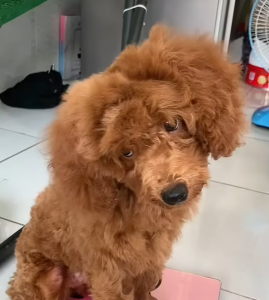
So, next time you see a curly-haired dog tilting its head, remember to take a second and appreciate it. That simple, inquisitive look might just be what you need to brighten your day, a small reminder that sometimes the simplest things bring the most joy.
